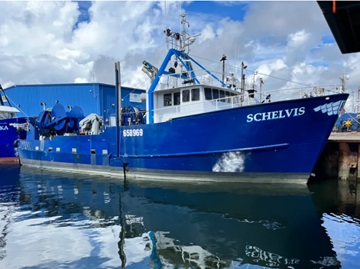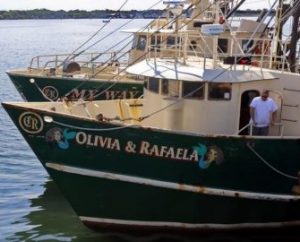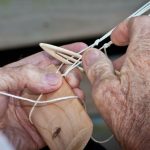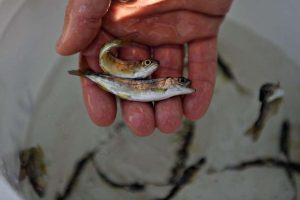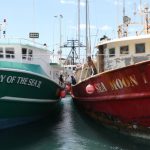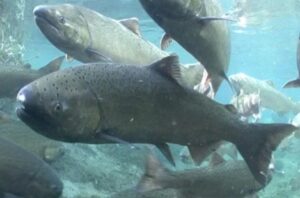Tag Archives: Brett Tolley
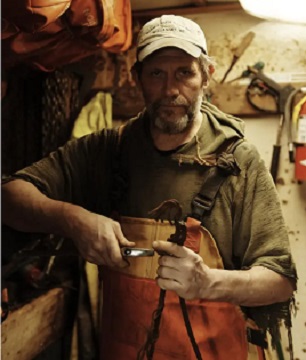
How foreign private equity hooked New England’s fishing industry
The 85-foot trawler, deep green and speckled with rust, was returning from a grueling fishing trip deep into the Atlantic swells. As sunrise broke over New Bedford harbor, the fish were offloaded in plastic crates onto the asphalt dock of Blue Harvest Fisheries, one of the largest fishing companies on the East Coast. About 390 million pounds of seafood move each year through New Bedford’s waterfront, the top-earning commercial fishing port in the nation. Leeman and his crew are barely sharing in the bounty. On deck, Leeman held a one-page “settlement sheet,” the fishing industry’s version of a pay stub. Blue Harvest charges Leeman and his crew for fuel, gear, leasing of fishing rights, and maintenance on the company-owned vessel. Across six trips in the past 14 months, Leeman netted about 14 cents a pound, and the crew, about 7 cents each — a small fraction of the $2.28 per pound that a species like haddock typically fetches at auction. Photos, >click to read< 12:04
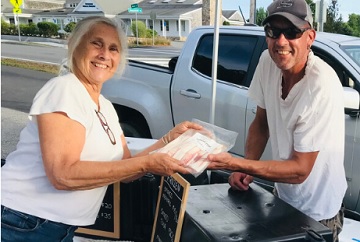
Fresh Off the Boat: Dogfish Available to Local Fish Lovers for First Time
For a number of years now, the spiny dogfish has been a mainstay of the town’s commercial fishing fleet. Along with skate, it is by far the largest species by volume landed at the fish pier. Most of that fish, however, is shipped to Europe, where it is used for fish and chips, among other things. But folks can now buy fresh-off-the-boat dogfish filets, which fishermen say if processed correctly will rival the texture and taste of traditional whitefish such as cod. “It’s beautiful white meat,” said Doug Feeney, a commercial fisherman and member of the Chatham Harvesters Cooperative, which is now selling fresh dogfish fillets. The Coop’s permits and equipment allow consumers to get the fish in vacuum-sealed packs for $10 per pound the day after it is caught. >click to read< 09:24
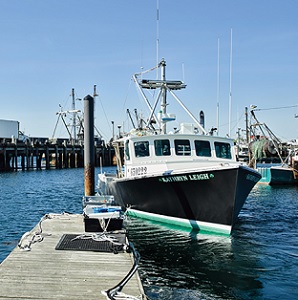
How Coronavirus Has Changed Business for Gloucester Fishermen
Gloucester has been a fishing town since its founding in the early 1620s, and the industry was the backbone of the local economy well into the 20th century. In recent decades, however, the industry has struggled as it grapples with regulations designed to prevent over-fishing and limit environmental damages. Many fishermen with long family histories in the business have had to turn to new professions, and the city’s fishing fleet has declined significantly since its peak. When the COVID-19 pandemic emerged, the situation became even worse. Government mandates and public health recommendations closed the doors of many restaurants, where the vast majority of the seafood consumed in the United States is eaten. In 2017, about 68 percent of the money Americans spent on seafood—some $70 billion—was at restaurants, according to a report from the National Oceanic and Atmospheric Administration. >click to read< 10:11
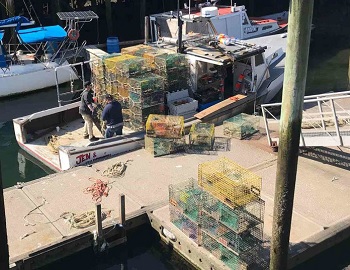
The Lunacy of Global Seafood Supply Chains
Like all global supply chains right now, this one feels unstable and unsustainable. Most of the seafood we eat in America, even in Gloucester, the country’s oldest seaport, comes from overseas. Most of what local fishermen catch is sent elsewhere. “The models aren’t designed to feed local and regional markets,” Tolley says. Those famous fish sticks bearing the logo of a Gloucester fisherman? By the time they reach your frozen foods section, they’ve made an exhausting global journey, exported for processing, then reimported. Nearly 500 commercial boats fished out of Gloucester a decade ago. Today, there are two dozen. This reflects both the decades-long collapse in groundfish stocks—the cod and haddock that once abounded in the cold waters off Cape Ann—and ever-more-aggressive federal measures limiting who can fish and for how much. >click to read< 09:07
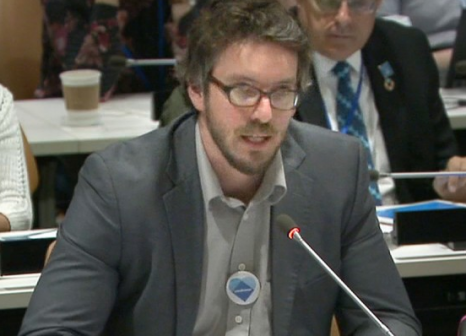
At U.N. Ocean Conference – Brett Tolley Touts Small-scale Fisheries
Fisheries activist Brett Tolley of Chatham has told many people about the plight of small-scale fishermen like his father, who left the industry because he couldn’t compete with big corporate interests. Last week, he told that story to world leaders in a special forum at the United Nations in New York.,, “We can’t buy our way out of this problem,” he said. The government rules that regulate commercial fishing tend to empower large corporations, and Tolley said that needs to change. Fisheries management that’s based on the allocation of shares (catch shares) or quotas of a particular catch tend to privatize the oceans, rather than treating them as shared public resources, he argued. Those policies tend to concentrate access to fisheries to a few big players. click here to read the story 13:47
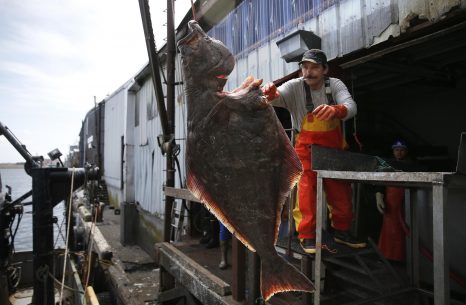
Loss of ‘Codfather’ permits could hurt New Bedford
By late morning just before Easter weekend, three fishing vessels lined up at the docks to unload their catch, and they all belonged to one man — the local mogul known as the “Codfather,” Carlos Rafael. “It’s a good haul,” a passing auction worker at the Whaling City Seafood Display Auction said under her breath, as crew members, some still in their orange waterproof bibs, unloaded the ice-packed fish. But now, Rafael’s recent conviction on federal charges that he cheated fishing regulations to boost his profits is putting his many vessels and permits up for grabs — potentially distributing them to ports along the New England coast. That would deliver an economic blow to New Bedford and the people who depend on the business created by Rafael’s fleet. If his permits are seized as expected, the National Oceanic and Atmospheric Administration, the regulatory agency known as NOAA, could reissue the permits to fishermen elsewhere in the region. “There are a lot more innocent people who could get punished by this,” said Jim Kendall, a former fisherman who runs New Bedford Seafood Consulting. click here to read the story 09:00
Being ignored at the Council or being publicly called an “asshole” by the Council Chairman doesn’t often make the news
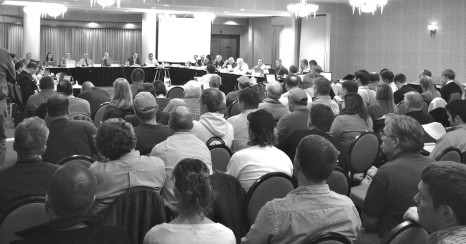 Catch Shares Take Toll Council Called To Task – At the April New England Fishery Management Council meeting in Mystic, Conn., a dozen university students from New England, members of fishing families, other fishing organizations, and community organizer Brett Tolley were in attendance. About a dozen people among this group wore orange “Who Fishes Matters” T-shirts. Continue reading An Open Letter to Tom Nies from a Fishing Family Member – Dear Mr. Nies, As Executive Director of the New England Fishery Management Council you should know how fishermen and the public experience the Council’s so-called “democratic process.” Read the letter here 18:10
Catch Shares Take Toll Council Called To Task – At the April New England Fishery Management Council meeting in Mystic, Conn., a dozen university students from New England, members of fishing families, other fishing organizations, and community organizer Brett Tolley were in attendance. About a dozen people among this group wore orange “Who Fishes Matters” T-shirts. Continue reading An Open Letter to Tom Nies from a Fishing Family Member – Dear Mr. Nies, As Executive Director of the New England Fishery Management Council you should know how fishermen and the public experience the Council’s so-called “democratic process.” Read the letter here 18:10






